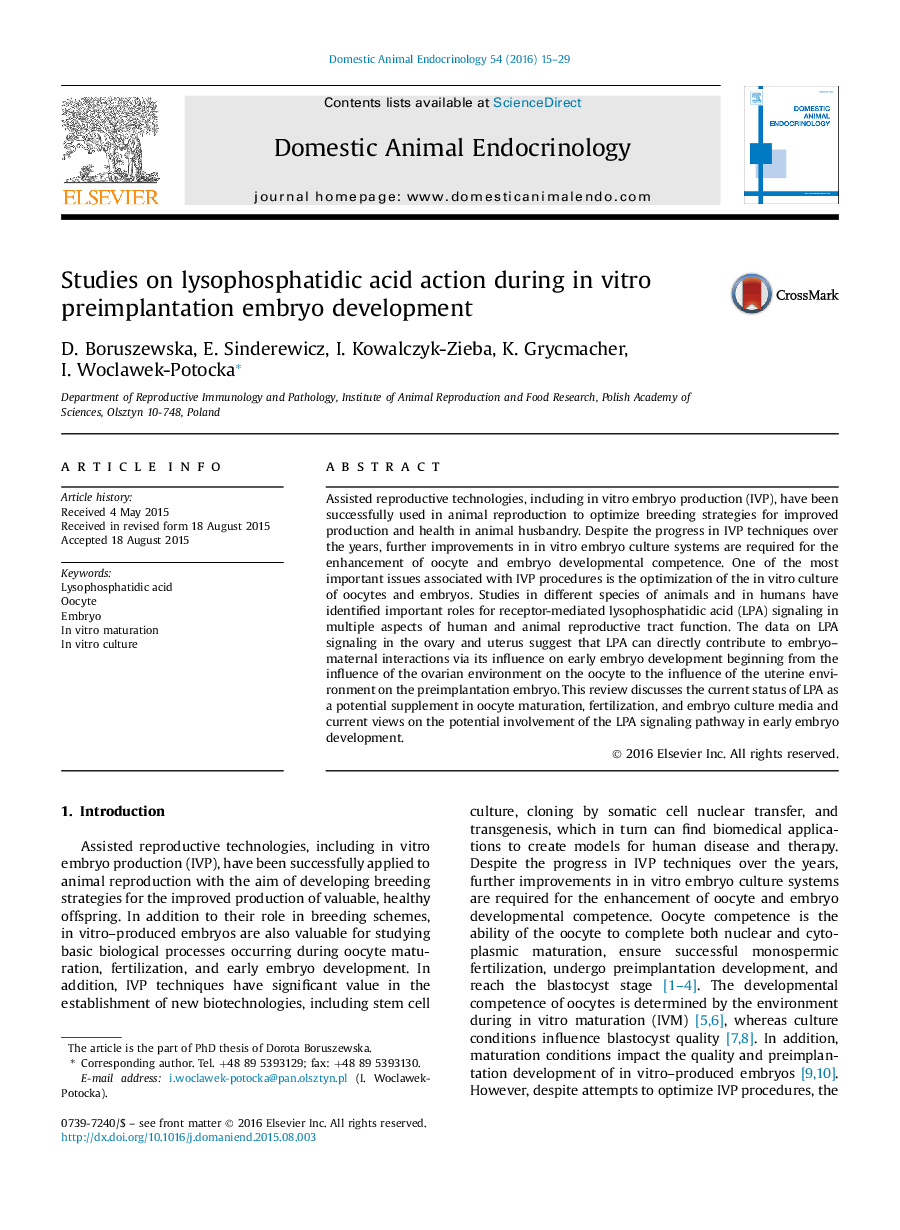| Article ID | Journal | Published Year | Pages | File Type |
|---|---|---|---|---|
| 2393426 | Domestic Animal Endocrinology | 2016 | 15 Pages |
•There is the possibility of LPA synthesis and LPA action in the oocytes and in the embryos.•LPA signaling has significant consequences for early embryo development.•LPA supports embryonic survival and improves in vitro embryo development.
Assisted reproductive technologies, including in vitro embryo production (IVP), have been successfully used in animal reproduction to optimize breeding strategies for improved production and health in animal husbandry. Despite the progress in IVP techniques over the years, further improvements in in vitro embryo culture systems are required for the enhancement of oocyte and embryo developmental competence. One of the most important issues associated with IVP procedures is the optimization of the in vitro culture of oocytes and embryos. Studies in different species of animals and in humans have identified important roles for receptor-mediated lysophosphatidic acid (LPA) signaling in multiple aspects of human and animal reproductive tract function. The data on LPA signaling in the ovary and uterus suggest that LPA can directly contribute to embryo–maternal interactions via its influence on early embryo development beginning from the influence of the ovarian environment on the oocyte to the influence of the uterine environment on the preimplantation embryo. This review discusses the current status of LPA as a potential supplement in oocyte maturation, fertilization, and embryo culture media and current views on the potential involvement of the LPA signaling pathway in early embryo development.
